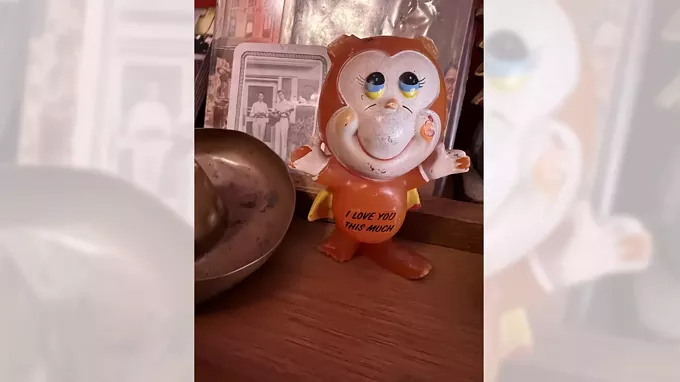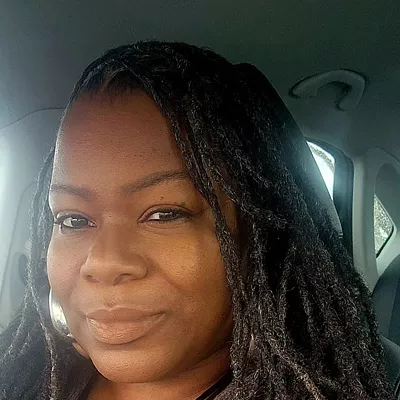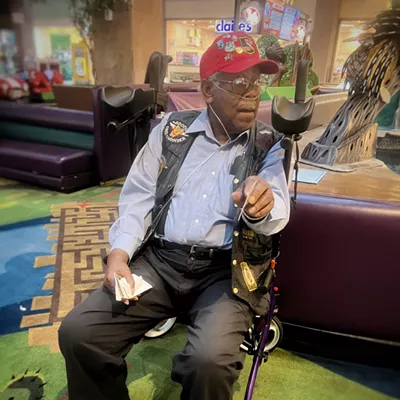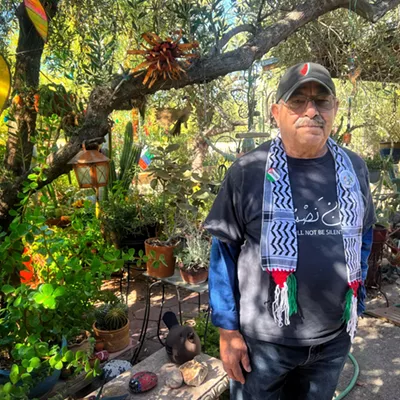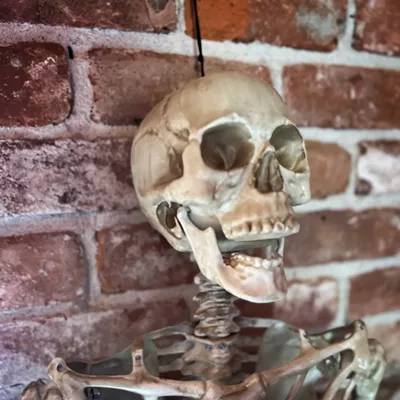It is the night of my birthday. I step mouse-quiet to my fine old desk in a little wine-red room at the end of the hallway. I write here if it is too cold or hot outside to work on the patio, where I like being amongst the roadrunners and ocotillos. My desk sits beneath a window through which I can see Tucson. My surroundings include some of my all-time favorite books, as well as images of singers, who were born Capricorn — David Johansen, Henry Miller, Charles Williford, Patti Smith, David Ruffin, Elvis, Bowie, Susan Sontag, Salinger, MLK, my father, and so on. I find some comfort in that birth sign knowledge, in those sad moments in which such odious comparisons can offer up that sort of thing.
I must be quiet. Young ones sleep, their bone growth and brain development depend on it. All hell can break loose if a single cry erupts. My wife is either nursing babies, sleeping or studying.
I am lost for a Tucson Salvage column because sometimes column subjects vanish. Many I write about do not own mobile phones, some do not care to. Sometimes they’ll fail to appear at a given time or place, even those who outwardly welcomed your trust.
It is my birthday. Like any birthday there are no natural outward signs of that fact; it is a day and a night just like the one before and the one tomorrow. Yet it is nearly impossible to stop the ruminations circling inside my head.
It was my 7th birthday and I secretly wanted a sparkle-green Schwinn Sting-Ray, which I knew would never happen. Instead, mom and dad got something about as cool — a freestanding Hot Wheels Super Rally Case with 20 cars included. Pretty sure I slept with that little tire-shaped container of joy for weeks.
My father’s birthday is three days before mine. That same Hot Wheel year I had gifted him a little orange-and-white plastic figurine, an upright mouse wearing a yellow cape and a fat, dimpled grin. Its outstretched arms reveal words on its stomach: “I love you this much,” it says. When my father died, I found that palm-fitting mouse among his things. I could not believe he’d held onto it all these years. That fact felt like some external force in the world. My dad never got to meet my children, but they often play with that mouse.
It was my birthday, a frightened kid in his late teens. I was standing on the edge of the subway platform in the Broadway-Lafayette Street station, waiting for the train to Brooklyn, where I was sleeping in the kitchen of my big brother’s flat in Sheepshead Bay. This was the early 1980s, pre-AIDS. (I was born too late — I had long pined for the bigger-than-life Max’s Kansas City, but by the time I got to New York, the club was all but ghosts.)
A moving mannequin with a wedding band followed my ass down Bleeker Street. The deserted station, the inevitable approach, the saggy face, the thin bleached hair, the contaminate in his voice: “Hey, didn’t I see you in San Francisco?”
It was just before midnight and I’d closed up Village Oldies, the beat used record store where I worked on Bleeker. The place was crammed with vintage 45s and albums and the mob owned the Asteroids and Ms. Pac Man video games. You’d pay yourself out of the antiquated brass cash register that left no record of sales, and leave the rest of the cash in an envelope for the grizzled, chain-smoking owner, Broadway Al, a record collector who once told me he had more than 70,000 albums at home. I suppose old Al trusted his employees. I don’t know why; he hired on a whim this scared, spindly glam-punk kid with rooster hair.
Pretty sure Al had a good idea how much vinyl would sell out of that shop on any given day in New York City. Sometimes he’d come in to bitch about someone else’s shift: “Goddamn Gordon never leaves any money in the envelope!” Anyway, when Iggy or Rick James stopped in, I just couldn’t bring myself to charge them for records, anything else to me felt like humiliation.
In those days, lower Manhattan late at night loomed equal parts mysterious and evil; streets always smelled of piss, and the frozen hobos screamed from the dark at me, their schizophrenic menace and unwalled sicknesses.
I could always spot the old chicken hawks, too. In from the ‘burbs, they’d hit bathhouses, streets and subway stations hunting boys, lurking, gazing hard for eye contact. Even in the cold.
The saggy-faced guy grabbed my crotch and pushed me hard back against the wall. “I’ll even pay you to suck you.”
I kicked and pushed and ran. Made it down to Sheepshead Bay, acknowledging reality with grim adrenaline and birthday wounds of a dude attacking me.
It is my birthday, and I can no longer catch a ride to my favorite ever bar, the Emerald Lounge in Phoenix. That dilapidated den opened in ’49, its fetching, musky, red-and-black interior, held, for a brief moment in time, a rare, simultaneous collision of deep sadness, joy and hope. Which is to say sweet melancholy, as brittle and fleeting as a valentine. My friends are gone, the bar is gone, and that was two cities ago.
For me, the Emerald was the forever charmed Miss Cary, the frank, unapologetic way she served drinks while still clinging to formidable purple poly pants and beehive wig, which would gravitate down over her forehead as she wearied into the night. This is a woman who’d poured drinks in the Phoenix underbelly for more than half a century.
In this moment I think of her, her comfort in imbalance. Her efficient and slow gait and protracted drink pouring could only be defined as sublime. Her nightly barstools upheld colostomy bags, workin’ stiffs, and soldiers of whatever gnarly internal battles drinking for something. She learned of them all, revealing precious little of herself, and of them, to anyone.
In that way Miss Cary and her Emerald felt like a birthday, and so I spent a few of them there. One time on said day my old band Beat Angels even set up and played a drunken brawl of a gig there.
I can no longer hop on a bicycle and peddle 80 miles. I can no longer down 14 Heinekens in one barstool session. I learned recently I could barely front a rock ’n’ roll band without the pain of a blown-out knee and catch-breath lungs between verses. The hips might still be slim, the songs, these melodies stitched back together from bones, faintly familiar. The verve and youth and danger and sexual tension as foreign as the gray taking over my head.
In a roundabout way, I met my wife, Maggie, fronting a band (Beat Angels). She’d attend our shows as a wide-eyed teen. She’d write us letters. One day recently she produced evidence that I’d written her back.
I consider how years later we’d connected, after I’d long been sober. We married, and I inherited a family and together we created four daughters. So today was not a day like yesterday, my wife filled it with close friends and family and children, as a surprise, at my favorite local park where the sun sets just right.
Yet if I look at that setting sun, each day, summer and winter, that lovely sort of sweet birthday melancholy will rise at the precise moment. It happens right when it is needed. Inspires every day. Maybe there should always be a day like the one before it and the one after it, if you manage to get them close to right.
And this very morning it was the eyes of my 2-year-old Zuzu. She climbed into the bed armed with lovely yellow, red and blue crayon-scrawled b-day art, awakening me with the words, “Happy birthday, Papa.”

